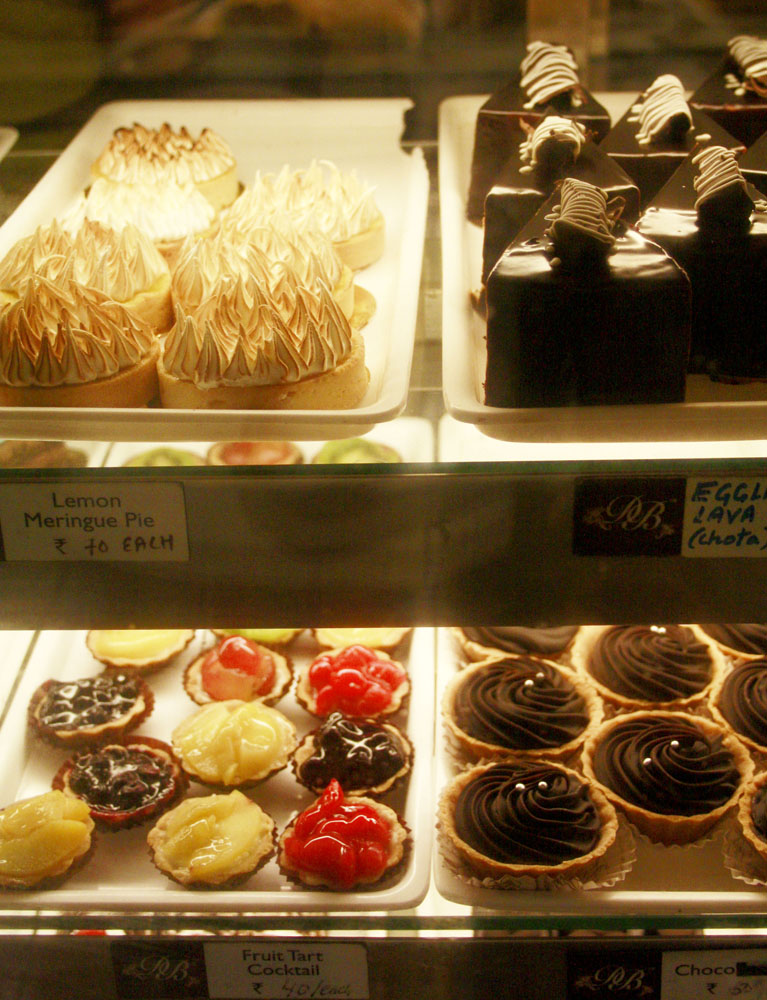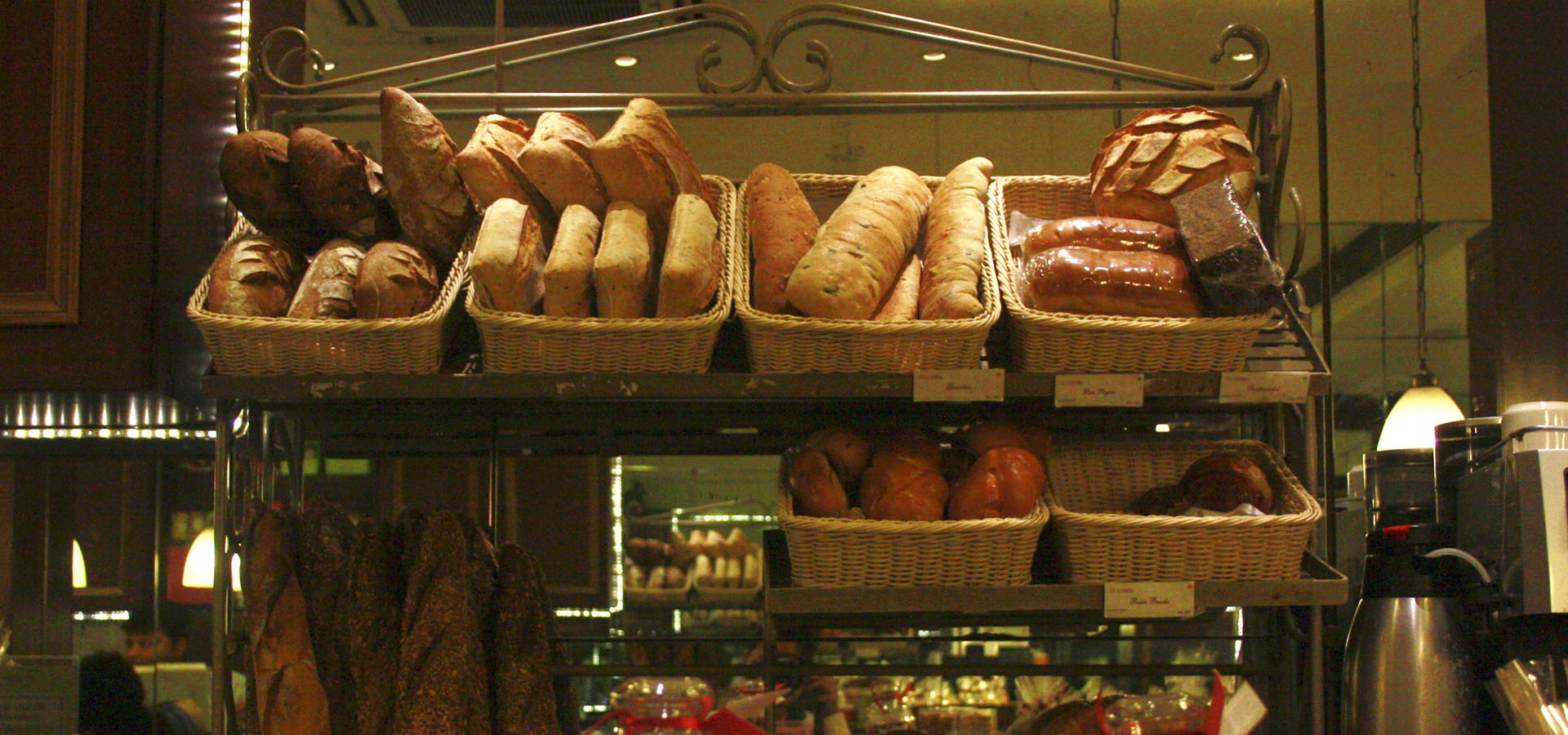Delhi’s Francophiles have had a lot to look forward to. Croissants, éclairs, and tarts seem to be the playing cards in a game whose players still don’t know their aces, but clearly reveal French bakeries or patisseries to be the unspoken rule.
While the macarons might fail to impress someone under a Ladurée spell, French bakeries have persistently emerged in the city’s posh market spaces for the last two years. They’re compact, flaunt baking expertise, and display their pastries without inhibition. Whether all of these could be classified as patisseries remains debatable.
The Big Chill Cakery and The Artful Baker both opened within a year—the former an offspring of a veteran Italian café whose desserts Delhi quickly grew to love, and the latter an independent venture focussed on artisanal bread and pastry.
Establishment Patisserie, housed in a small basement in Meherchand Market, is one of the most recent. “For me, the difference between a bakery and patisserie is the quality of the products. Where most Delhi bakeries use whipped cream, we use cream cheese,” claimed the founder, Seerat Johar, when asked why she decided to call it a patisserie and not a bakery.
Despite aspirations of meeting international pastry standards whilst managing to be reasonably priced, Johar was humble and honest in revealing that none of her chefs were licensed maître pâtissiers. That could spell trouble in France or Belgium, considering both countries only allow an establishment to call itself a patisserie if a licensed maître pâtissier has been employed in the kitchen. Delhi, however, is usually content with a place that has floral wallpaper and sells gift-worthy pudding and biscotti.
L’Opera, started by Laurent Samandari of French and Iranian lineage, has been around longer, and is visibly more upscale although its sign is pastel pistachio in colour, too. “Our first outlet was launched at the French Embassy in 2010, and there now exist 12 others within Delhi” says Amit Pandey, the store manager. “Cydric, our main pastry chef holds a license that he earned during his time in France.”
The tiny passage that makes up one half of L’Opera is filled with immaculately dressed couples who look like they’re in their 30s, French expats seemingly below 30, and sometimes even white-haired men in sunglasses. All of them have the unmistakable aura of a swish-Delhi-neighbourhood resident. Smarty-pants salespeople whip baguettes and loaves out of shelves, making small talk with customers behind counters of raspberry mousse and kiwi Danishes.
It’s incredible to see that Delhi’s older bakeries have managed to hold on to their glory amidst these younger, plusher initiatives. Wenger’s, from the 20th century, is packed within an hour of its opening time every single day. The Manager, Charanjeet Singh, affirms that the place was opened in 1926 by a Swiss couple with the last name Wenger. “In 1945, the Tandon family purchased it, and have been running it since,” he adds. Most customers have been walking in for years—the nonchalant faces and authoritative voices that order only bestsellers are a telltale sign.
Patrons at Wenger’s are a fair mix of school and university students, and older men and women. Their fashion sense holds little recall value; all they seem to care about are the cream rolls, pineapple cake, and patties—stuff that Delhi bakeries were identified with long before dainty pudding, macarons, and baguettes became the norm. When asked about Delhi’s changing pastry scene, Singh said: “It doesn’t affect us. Visiting us is a tradition that has been passed on from generation to generation.” he explained that although the brand has mostly remained true to its old recipes, they have also moved with the times when needed. “Earlier, our cakes used margarine. With an increase in awareness, we started to use butter, and then fresh cream.”

It joined the game a little later, but Defence Bakery is a chip off the old block, too. Its façade is colonial, quite like Wenger’s, with wood-framed doors and a large, wooden signboard on top. The donuts and muffins they sell are perhaps the softest that can be found in the city. There are a decent variety of pastries, including both old favourites and new additions to choose from, and prices aren’t too exorbitant (Rs 75 for a macaron; Rs 40 for a mini fruit tart). This one, too, sees regulars—of all ages—throughout the day, most of whom are polite and unobtrusive.
Although the style and appearance of shops selling baked goods in Delhi may have changed over the years, each has an individuality that it sticks to. Newer ones, however, clearly see customers with more dough to spare. The next few that open shop will decide the future of baking in the city. Whether home bakers or licensed pasty chefs will own these, only waiting patiently—like for a pain au chocolat to come out of the oven—will tell.




